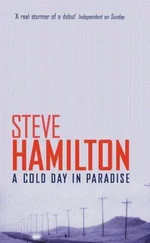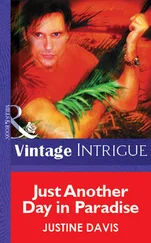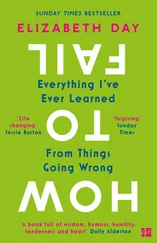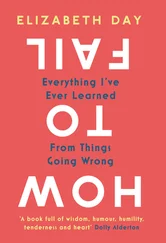Wasn’t that worthy of some respect?
Because, after all, you only sold product by knowing first how to sell yourself.
As a young boy, Howard had once seen the Petticoat Lane crockery-seller assemble an entire place-setting, one plate on top of the other, and then throw the whole lot into the air. The trader had caught it on the way down with a giant clatter of noise and not one single plate had shattered. The housewives couldn’t open their purses quick enough after that.
That was how you shifted stuff. It was a question of performance. It was a matter of confidence.
He feels a moistness under the armpits. The collar on his shirt is too tight, even though he has spent an arm and a leg on it – forgive the pun. The shirt is made by a company called Eton. They normally sold shirts for tall, thin men but he’d insisted they custom-make them to accommodate his ever so slightly more corpulent form. Initially the name amused him – the conjunction of the country’s most famous public school with the rag-trade he knew like the back of his hand – but the joke didn’t last for long. Now, in the mornings, it depresses him to catch sight of the label.
He presses the button for the lift. Behind him, there is a squall of high-pitched laughter. He winces, then glances across. There are four people sitting in high-backed armchairs to one side of the lobby, being served silver trays of miniature scones, sandwiches and cupcakes. Two of them are older, their features bled of colour, their eyes faintly wrinkled. They look as though they are trying to enjoy themselves but would rather be at home, listening to Gardeners’ Question Time.
He guesses they are parents who have come into the city at the behest of their children to celebrate some family anniversary. Their offspring sit opposite them now – two young women, shrieking with hilarity, wearing skinny jeans and dark-coloured jackets, their hair slicked with the shine of urbanity, their lips stretched with the complacency of youth. A mobile phone, encased in pink diamanté, lies on the table in front of them. One of the girls sees him looking and stops laughing abruptly.
He thinks of her, then, as he had known he would. He thinks of the person he tries daily to forget without actually wanting to do so. He allows himself one brief flash of recall: her hair in bunches, a gap where her front tooth should have been. She is wearing a tartan dress and crushing rose petals in a mixing bowl to make what she calls perfume.
His daughter. Ada. Named after his mum.
The lift pings. He walks in, forces himself to smile at the reflection in the mirror. On the fourth floor, the doors part and he turns left down the corridor, glancing at the cardboard key holder to remind himself of the number. Room 423. A corner room.
He slips the plastic key into the slot. The door handle light winks green. He enters. His luggage is already there, on the rack by the television. The inner curtains are half-drawn, the white net giving the room a drowsy, shadowed feel. The flat-screen television is set to a personalised welcome message. Two glass bottles of mineral water stand on the capacious desk. The mirrors are all discreetly tilted and lit in a way that makes him look at least ten pounds lighter. He knows, without having to open it, that the minibar will contain a half-bottle of fine Chablis and a bar of Toblerone.
Safety, he thinks, inhaling the familiarity of the surroundings. There is a particular security, for Howard, derived only from an ease that has been painstakingly thought out by other people for his benefit. He admires the competence and does not mind paying over the odds for it. It allows him, for a few hours, to be entirely outside himself.
He removes his jacket, places it on the back of a chair, slips his BlackBerry out of the inner pocket and turns it off. He unlaces his shoes. And then, in spite of the fact that it is three in the afternoon, in spite of the fact that Tanya the receptionist would be surprised at what he is about to do, in spite of the fact that Sir Howard Pink has appointments to make, places to be, people to meet, companies to manage, emails to answer and balance sheets to read, he pads into the bathroom, turns on the tap and runs himself a deep, deep bath.
This is what he does on the first Monday of each month. A ritual, if you like.
Afterwards, smelling of generic spiced shower gel, he puts on his robe. Howard notes with displeasure that the edge of one cuff is bobbled. He can’t abide untidiness in clothes. He has been known to throw away a pair of trousers after finding a badly stitched seam or an unravelling thread. Fastidious, that’s what Claudia calls him. It was one of her words, deployed in conversation to confuse those who imagined she was little more than a silicone-enhanced trophy wife. He found her reading the dictionary sometimes in bed.
‘What are you doing that for?’ he’d ask.
‘I’m improving myself, Howie. You should do the same.’ And then she’d read out one of the definitions and get him to guess what word it belonged to.
‘“Pertaining to a gulf; full of gulfs; hence, devouring.”’
‘I dunno.’
‘“Voraginous.”’
He’d never get the right word. But that, of course, was part of Claudia’s cunning. She wasn’t clever but she knew how to jab him in the ribs, how to bring him down a peg or two when necessary. Everyone knew he’d left school at fifteen without qualifications: it was part of the Howard Pink myth. In the interviews he’d done way back when he’d opened his first flagship store in Regent Street, he’d been delighted when the journalists brought it up, had revelled in the image being created for him of a hard-working lad with gumption and guile who didn’t suffer fools gladly. He can admit now he’d been flattered by the attention, by the notion that these Oxbridge graduates from The Times and the Telegraph with their economics degrees and their flashy dictaphones were wanting to talk to him – to Howie Pink of Pink’s Garments on Petticoat Lane – and record his answers for posterity.
One of the headlines had read: ‘Howard Pink: the self-made tycoon who’s got it tailor-made.’ The accompanying photograph showed him mid-laughter, his stomach billowing out like a sail in full wind, his face scrunched up, his tongue lolling grotesquely to one side. He’d liked the idea of being a tycoon.
The picture did him no favours. Still, he thought he could live with it.
But through the years, that photo had been used again and again. Even though it was now twenty years out of date and he’d stopped giving interviews after what happened, they still used it like a taunt, a reminder of his perceived clownishness. For a while, for obvious reasons, he’d become ‘Tragic self-made millionaire Howard Pink’ and the photograph had disappeared, but now there had been a sudden resurgence.
It had popped up again last month in an in-flight magazine. He’d been flying back first-class from Munich and there it was, in full Technicolor glory, when he leafed through Airwaves: a gurning facsimile of Howard Pinkishness, used to illustrate a four-page feature on British businesses. He’d been fatter back then and had indulged in a misguided attempt to grow some facial hair. It was before he’d had his teeth done too. Suffice to say, it wasn’t his best angle.
After the in-flight magazine, he’d called Rupert, his PR man.
‘Anything you can do to stop them using that fucking thing?’ he’d asked.
‘Legally, you mean?’
‘Legally, illegally, I’m not fussy.’
There had been a quick intake of breath on the other end of the line. Rupert could never tell whether his boss was joking or not.
‘Er, well, Howard, we want to keep the media on-side, for obvious reasons, so I’d caution against doing anything too draconian—’
Читать дальше












